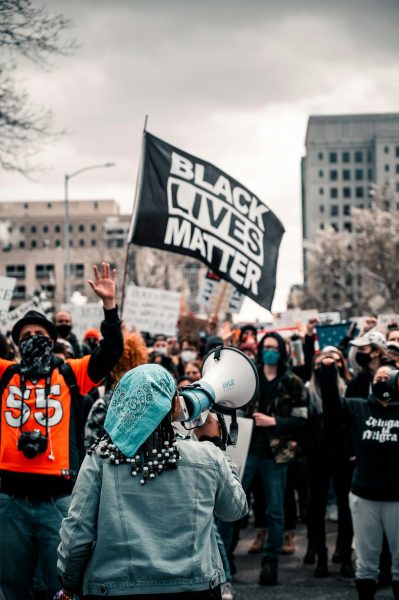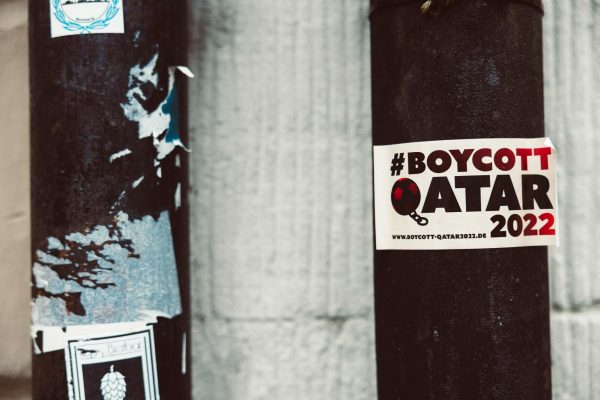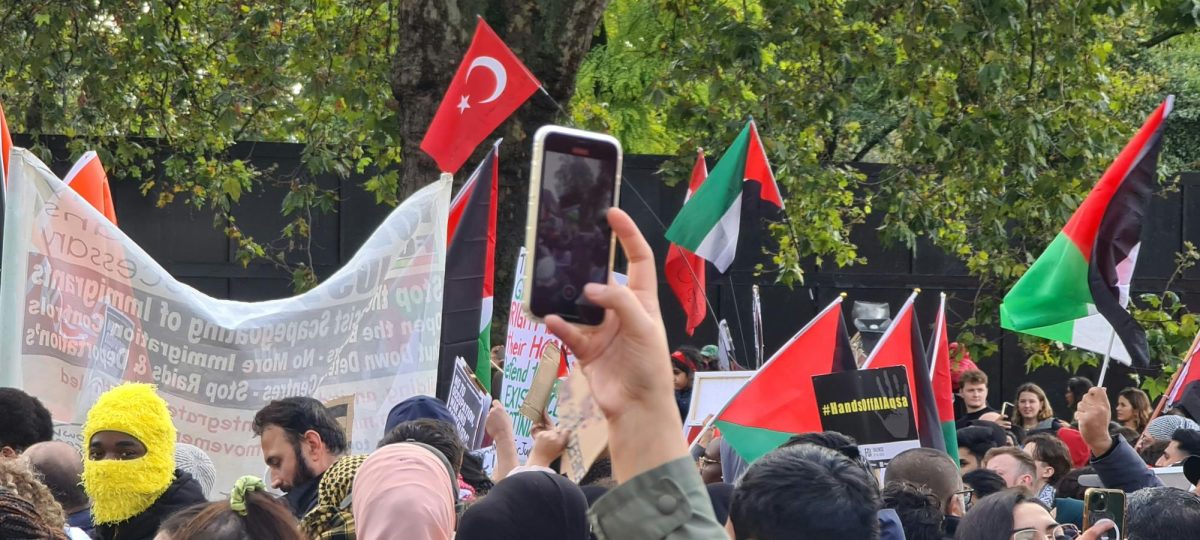Boycotting, or the act of refusing to buy from a company for specific purposes, is a term commonly thrown around. Boycotting was a way for people to speak out against practices and companies that are regarded as unfair. Nowadays, it seems like everyone is boycotting everything. Boycott this and boycott that. But does boycotting work?
Black Lives Matter
Black Lives Matter (BLM) is a movement that was started in 2013 in response to the killing of Trayvon Martin in 2012. Martin, 17, was killed by George Zimmerman, 28, when walking back to his father’s fiancee’s townhouse in Stanford, Florida. Zimmerman had initially called the police on Martin because he looked “suspicious.” Shortly after, Zimmerman shot at Martin, in what Zimmerman claimed to be self-defense. Having no evidence to refute this, Zimmerman was not initially charged due to Florida’s “Stand our Ground” law (self defense law), causing public uproar.
Soon after, Alicia Garza, Patrisse Cullors, and Opal Tometi, friends of Martin, created the hashtag #BlackLivesMatter on social media.

Facebook was one of the largest social media networks in the early 2000s. With around 3 billion users worldwide, misinformation and negative speech can spread quickly and reach a massive audience.
During the BLM movement, hate speech, misinformation, and other harmful content was spread like wildfire on Facebook. Instead of handling the situation effectively and timely, Facebook kept the posts up. This caused public backlash, with people arguing that Facebook’s policies were not helping combat the problems, allowing them to instead spread on the platform.
On May 25th, 2020, another innocent African American person was murdered. George Perry Floyd Jr, was suspected by the store clerk of using a counterfeit twenty-dollar bill. The store clerk called the police, leading four officers to the scene. Derek Chauvin, one of four police officers, knelt on Floyd’s neck and back for 9 minutes and 29 seconds, causing his death from a lack of oxygen. The civil rights organization “Anti-Defamation League” formed a campaign called “Stop Hate for Profit” in June 2020, asking companies to stop funding Facebook and Instagram ads for July 2020. Numerous companies joined the campaign, including The North Face, Coca-Cola, and Starbucks.
After the boycott started on June 26th, 2020, the share price of Facebook dropped by 8.3%. Following that, Mark Zuckerberg announced that Facebook would start placing “warning labels” on posts inciting violence, voting propaganda, and racism.
Four days later, Facebook removed groups associated with the Boogaloo movement, a far-right anti-government extremist movement promoting white supremacist beliefs.
In this instance, boycotting worked, leading to the implementation of new policies on Facebook to prevent the spread of false information, racism and violence.
The Qatar World Cup
Upon the announcement of the 2022 World Cup location, seven new stadiums were built and one was refurbished in Qatar.
Qatar has a history of abusing their migrant workers, with the construction of the eight stadiums proving no different.
During the construction, 6500 migrant workers from India, Pakistan, Nepal, Bangladesh, and Sri Lanka died. Those who survived were barely paid, if at all. They were lucky to have been paid even €1 during their 10 hour grueling shifts in the humid, suffocating 104 degree Fahrenheit weather. To worsen matters, the Qatari authorities attribute the worker’s deaths to “natural causes” or vague heart problems, claiming that the workers were old and had pre-existing health conditions.

The news spread like wildfire, with locals and others threatening to boycott the World Cup. From October 15th to November 14th, 2022, the hashtag #Boycottqatar2022 was used 22,000 times on Twitter. The hashtag went viral, accumulating over 43 million viewers.
There were protests offline too. On November 5th, 2022, soccer fans in Germany began protesting human rights violations in Qatar. Angered by numerous injustices, fans held huge banners condemning the Gulf state’s exploitative treatment of migrant workers.
In the country of Qatar, the LGBTQ+ community experiences discrimination and legal persecution. Sexual acts between males are illegal, with the threat of being imprisoned for up to three years. Forced conversion therapy, and beatings by police and other authorities have also been used as punishment.
Anger spiked when Khalid Salman, an ambassador for the World Cup Qatar 2022 and a former Qatari national team player, tweeted a homophobic comment, claiming that being gay is haram and that homosexuality is ‘damage to the mind.’
In response, the U.S. soccer squad posted the rainbow-themed team logo inside their training facility and media workroom during the World Cup to support the LGBTQ+ community. Major cities in France such as Paris and Marseille decided not to publicly broadcast the World Cup matches on giant screens in fan zones. Additionally, several European soccer federations such as Germany and France decided to have their captains wear armbands with a rainbow heart design as part of an anti-discrimination campaign. To this day, homosexuality is still illegal in Qatar, but recently, Qatar passed new labor laws, adding a structure for working hours (maximum of 48 hours a week, or 8 hours a day, and 36 hours a week during the month of Ramadan), and instituting a minimum wage (QAR 1,800 or around $494.30 a month). Prior to this, workers had to obtain a No Objection Certificate in order to change jobs. Now, workers can quit without any underlying issues.
Fast Fashion
Fast fashion offers rapidly produced low-quality clothing at even lower prices, hooking in young teens with small allowances and a dream. From the exploitation of garment workers to environmental devastation and the production of low-quality products, fast fashion causes major issues in our society.
Cotton production must mirror the speed of clothing production in order to keep up with fast fashion. Cotton requires 10,000 liters of water for every kilo produced. Cotton has typically been grown and cultivated in poorer countries such as Mali and Chad. With the immense amount of cotton required to produce clothing, these countries have faced water scarcity, placing strains on already struggling economies. Additionally, water resources are often overexploited, leading to the degradation of natural water sources, such as lakes.
Fast fashion companies often mistreat their workers in order to maintain such low prices. They create contracts with factories in developing countries where labor costs are low. Brands set a deadline for factory workers, causing both the factory managers and the workers to work for hours without breaks. These workers, on average, work between 12 to 14 hours a day, with no overtime pay.
Founded in 2008 in Nanjing, China, Shein is one of, if not the biggest, fast fashion brand.
People can buy full outfits for less than $10. With prices incomparable to other companies, Shein generated $24 billion in revenue in 2022 alone. In April of 2022, Shein was valued at $100 billion.
Even with the tremendous revenue, the working conditions in the factories were unsafe, lacking safety protocols like windows and emergency exits. Additionally, many of the workers worked without contracts or meeting the minimum wage requirements. In the ‘Inside The Shein Machine’ documentary made by Channel4, the documentary filmmakers discovered an even uglier truth. Workers worked 17 hour shifts, with a salary of $20 per day, which would be docked to $6 if the clothing had any imperfections.
During the month of Ramadan 2024, Justice for All, a human rights organization, called on Muslim women to boycott Shein, alleging its involvement in Uyghur forced labor.
An estimated 100,000 Uyghurs and other ethnic minorities in China are working in conditions of forced labor following detention in re-education camps in Xinjiang. This forced labor includes cotton picking, and according to a survey in 2021, 16% of cotton clothes in the U.S. contained cotton from Xinjiang.
In December of 2021, President Joe Biden signed the Uyghur Forced Labor Prevention Act (UFLPA), banning goods made in Xinjiang. From this law, people are to assume that all goods made in Xinjiang are from forced labor, resulting in a decline in demand for Uyghur cotton.
However, Shein’s net worth is still at a peak, with the company bringing $2 billion in 2023.
Boycotting only works if masses decide to boycott together. Like Shein, with just as many consumers as boycotters, boycotting doesn’t always work. With a net worth of $100 billion, it seems like a big company like Shein won’t be going down any time soon.
Boycotting, or the act of refusing to buy from a company for specific purposes, is a term commonly thrown around. Boycotting was a way for people to speak out against practices and companies that are regarded as unfair. Nowadays, it seems like everyone is boycotting everything. Boycott this and boycott that. But does boycotting work?

